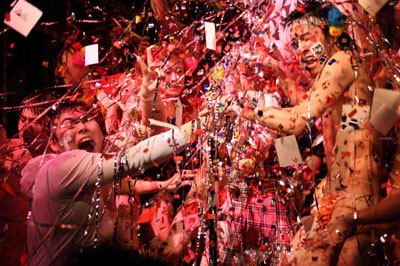London’s my city. Always has been and (I hope) always will. I’m a grandchild of immigrants, and grandchild too of a rootless, vicious century which has played havoc with the idea of home. Home is where you are for now. Home is where you hope you’ll stay, but you don’t count on it.
I don’t suppose I’m the only person to keep a mental suitcase under the bed – if I had to, what would I take, where would I go? I’ve thought about it more since Britain’s Brexit referendum made London seem anomaly and licenced an ugly upsurge of racism. Voting against the grain of much of the country, in both the mayoral election and recent referendum, Londoners refused to be spooked by the perils of immigration: we live with it and we know it works. Live here for a year and you’re a Londoner; it’s a place to make yourself, to make a life – a world city that shows you the world.
In a big messy city full of strangers, you plot your own pathways. You find your patches – the bits to live, the bits to work and play. My London is inevitably plotted with theatres: you could write a history of what’s exciting in London theatre by my tube journeys – the way Hammersmith and Kennington have now been succeeded by Dalston and, surprisingly, placid Richmond.
It’s not just venues, but ventures that make a cultural life. One of the first projects to catch my attention as a young theatre goer was LIFT (the London International Festival of Theatre). In a city that already has its hands full of delights, there is something about adding yet more to it that feels positively giddy. When, as often, LIFT shows slipped out of theatre buildings, they opened up the city to me, taking me to parks, offices, cemeteries that I’d never seen. Visitors brought their art, but their gift was also to help me inhabit my home.
In LIFT, the world arrives to open our eyes – and we open our arms in return. You hope to be bowled over – yay YOUARENOWHERE – though it’s fine not to love everything (oh hello, Phaedra(s)). But the best treats are those that simply couldn’t be home grown, because they depend on a perspective we’re not privileged to own.
‘We have crossed the wide sea to come and see you’
The festival’s most arresting shows this year placed shared experience at their hearts. Minefield was an extraordinarily powerful emotional event – created by Lola Arias with both Argentine and British veterans of the 1982 Falklands conflict. Through letters and confessional monologues, dad rock and hokey karaoke, the six middle-aged men relived their former selves. They didn’t share a language or an ideology – but they share a history and a need to recuperate from it. That they did so together, on stage, in front of a mongrel London audience, was immensely moving. The silences in Minefield were profound, because both performers and spectators were working hard during them, thinking about what had brought these men together, and brought them to us.
Sometimes it’s enough for a culture to sashay into town with only a puppy dog eagerness to please. Lunatic loud and crazy colourful, Miss Revolutionary Idol Berserker is a no-footnotes subcultural study of the superfans of Japanese pop stars. However bland the acts, their fans’ devotion is lung-bustingly wild. Director Toco Nikaido orchestrates a dizzying blare of costume changes, dance routines, songs in the key of shriek, and a hail of objects (water, toys, glitter, trash, seaweed and tofu) over the audience. We wear blue rain ponchos and a gobsmacked grin. Close your eyes to evade another bucket of water, and when you look up everyone’s dressed as a Russian doll, or in kitty masks. Flinch from flying beancurd, and they’ve changed again. At the end, we’re pulled up on stage, and the company of fans salutes us, before giving us a red carpet yelp as we leave. It’s bewildering, but delightful.
As Nikaido says, ‘we have crossed the wide sea to come and see you. Even though we have never met you, we are dying to meet you… take your hands and become friends.’ That’s how cities work. They get more than they give from their visitors. Retaining our open hearts is necessary work.
Follow David on Twitter: @mrdavidjays


Leave a Reply